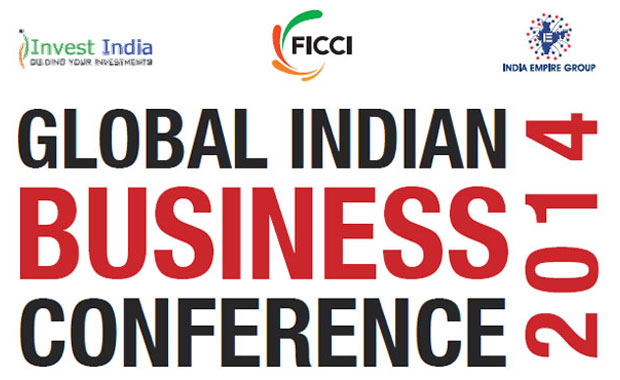Global Indian business conference 2014
Mr. Kant pointed out that around the globe, cities account for about 3% of the earth’s landmass, but they are responsible for consumption of 75% of the earth’s resources and for two-thirds of the world’s green house emissions. Speaking about the challenges that India faces going ahead, he said that the prime one was that cities had to be built on the back of public transportation systems to make them sustainable. Innovation and sustainable growth strategies are required besides a sustainable public transport system. While the government can create the backbone for infrastructure development, it is the private sector that must come forward and invest in these projects. The second challenge was in the use of technology in urban infrastructure in a way that India is able to come up with smart cities, intelligent cities, and in this India has a great opportunity lying ahead. Cities, he said, are the key drivers of growth and the need is to know how to use technology to leapfrog the development of smart cities. The third challenge was to deal with and mitigate issues raised by unplanned urbanization as can be witnessed in cities such as Delhi and Mumbai.
He said that the Delhi-Mumbai Industrial Corridor (DMIC) will create jobs and usher in the process of cluster developments. He said that containerized train systems will deliver goods produced in the northern parts of India to ports on the western coast of India in 14 hours, from the present time frame of 14 days. He said that in DMIC, the process of geographical planning has been converged with technological planning. The government has also planned out the Chennai-Bengaluru corridor, the Kolkata-Ludhiana corridor and the Bengaluru-Mumbai corridor.
Mr. Talwar said that there is a huge opportunity for Indian industry in urban infrastructure, mainly because the government is keen to play the role of facilitator in developing it. Largescale participation by the private sector is required for sustainable development and planning out of new cities. Integrated public transportation, processing and recycling of water and waste, and use of renewable energy are needed to develop smart cities catering to the needs of the population, he added. He also said that any company that invests in railways can become the largest power company in India and it can, by extension of its services, become also the largest telecom company in India.
Mr. Raheja emphasized that besides developing urban infrastructure, it is necessary to develop regional infrastructure as well for inclusive and sustainable growth. He said that the youth today is looking for gainful employment. Though migration from rural to urban areas has been unprecedented and will rise in the years to come, still it is essential to focus on regional infrastructure as urbanization alone cannot fulfill the increasing demands of employment and facilities required by a burgeoning population.
TOURISM & HOSPITALITY

The tourism and hospitality panel comprised Dr. Jyotsna Suri, Senior Vice President, FICCI and Chairperson & Managing Director, Bharat Hotels; Tan Sri Dato’ Ajit Singh, Member, Prime Minister’s Global Advisory Council of Overseas Indians and Member, Malaysia-India CEOs Forum; Mr. Amit Prasad, Chief Operating Officer, Go India Journeys; and Mr. Paras Shahdadpuri, President, Indian Business & Professional Council and Chairman, Nikai Group of Companies. The session was moderated by Tan Sri Dato’ Ajit Singh.
Delivering the special address, Dr. Suri said that India with its mountains, beaches, adventure spots and heritage monuments has a tremendous scope and a high potential to grow. The tourism and hospitality sector has been declared a high-priority sector for the economy. The Government of India has allowed 100% FDI in all construction and development projects in the tourism sector, such as hotels and resorts. Several initiatives by the Indian government such as tax holidays and a dedicated hospitality board are in place. Major international hotel chains have a presence in India which is a promising sign. She quoted the World Travel and Tourism Council which has said that by the year 2019, India’s tourism sector is set to become the second-largest in the world and will be providing jobs to 4 million people, either directly or indirectly.

Tan Sri Dato’ Ajit Singh said that tourism has the potential to be a $1 trillion industry. He said that India received 7 million tourists last year and, in comparison, Malaysia received 25 million. Clearly, India has a huge potential to grow further. Tourism is an industry which nobody can afford to really ignore, the Tan Sri maintained.











Comments.